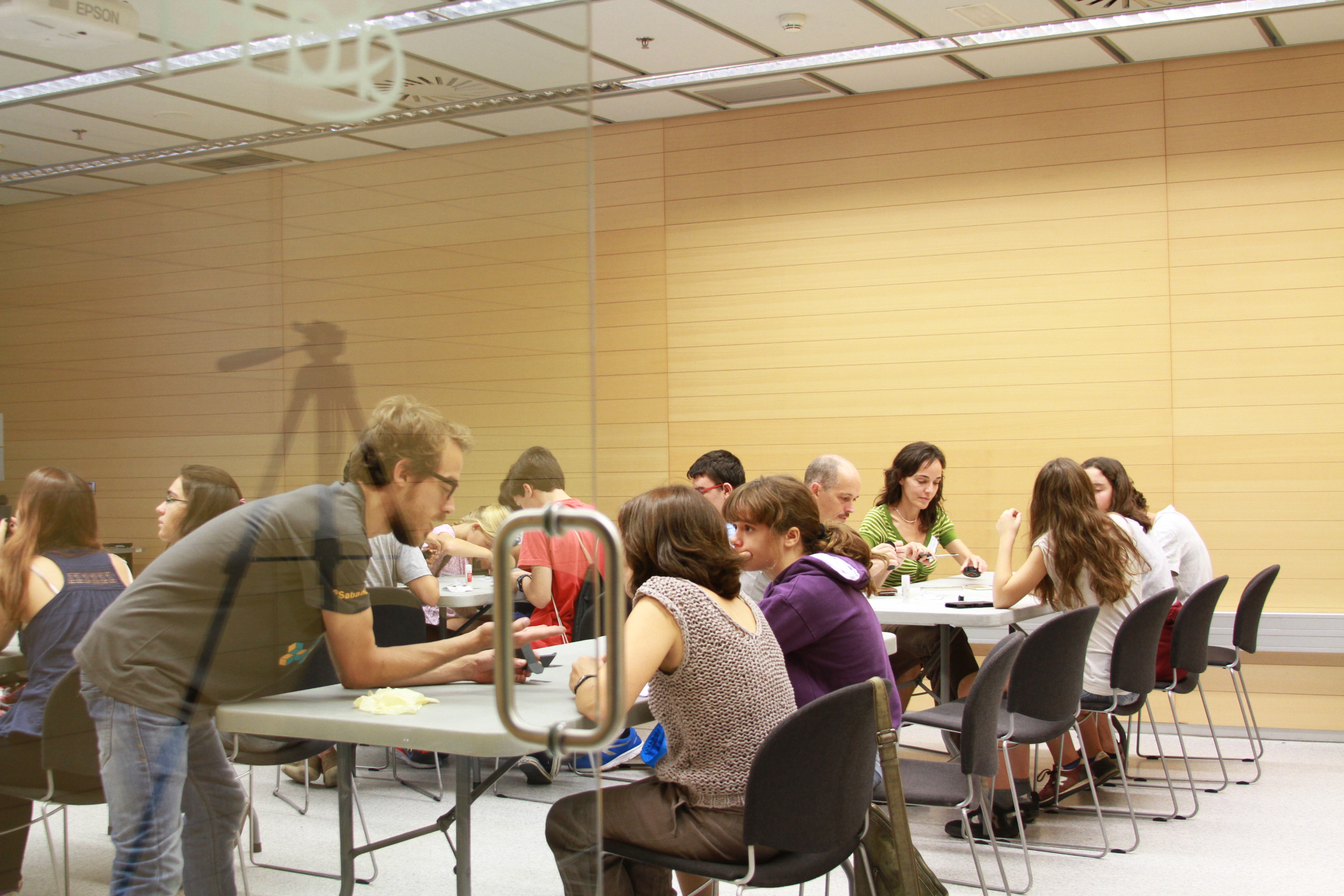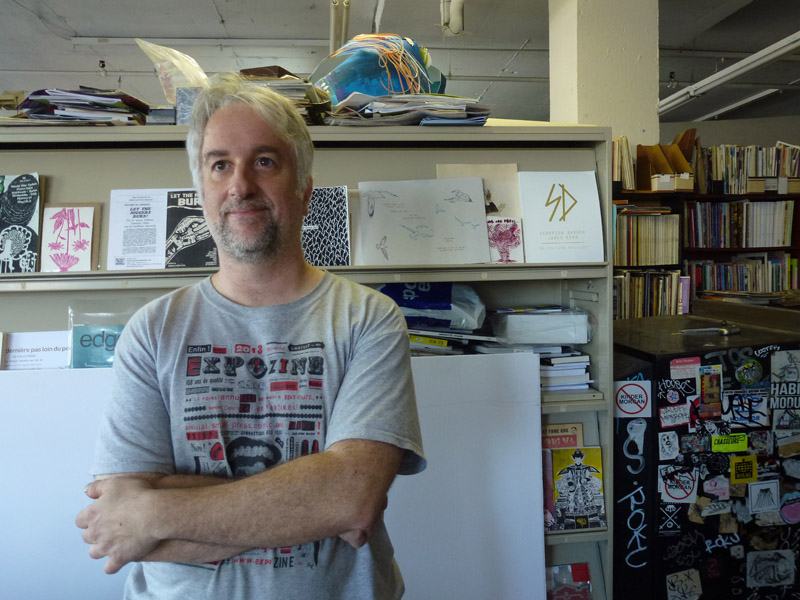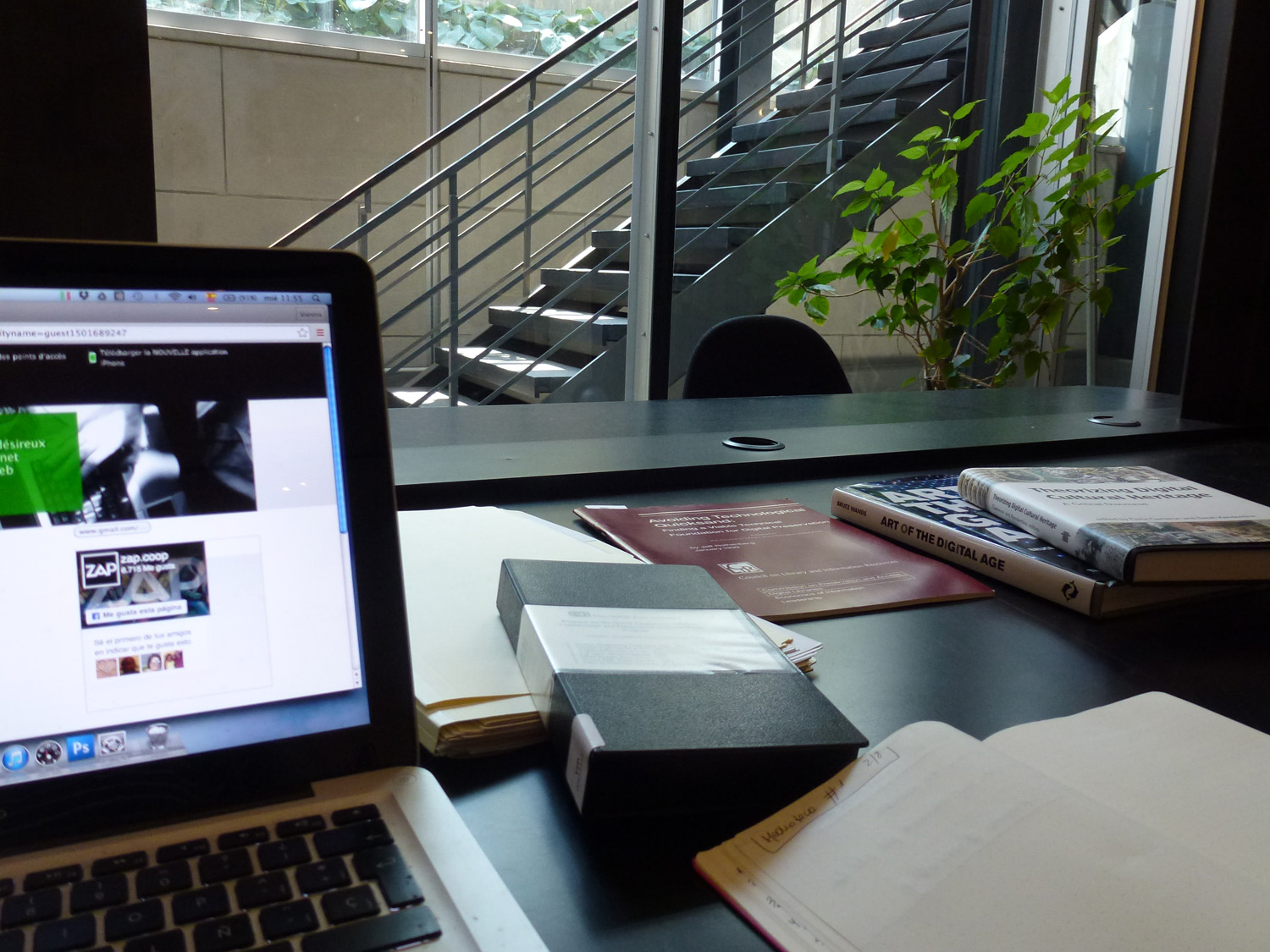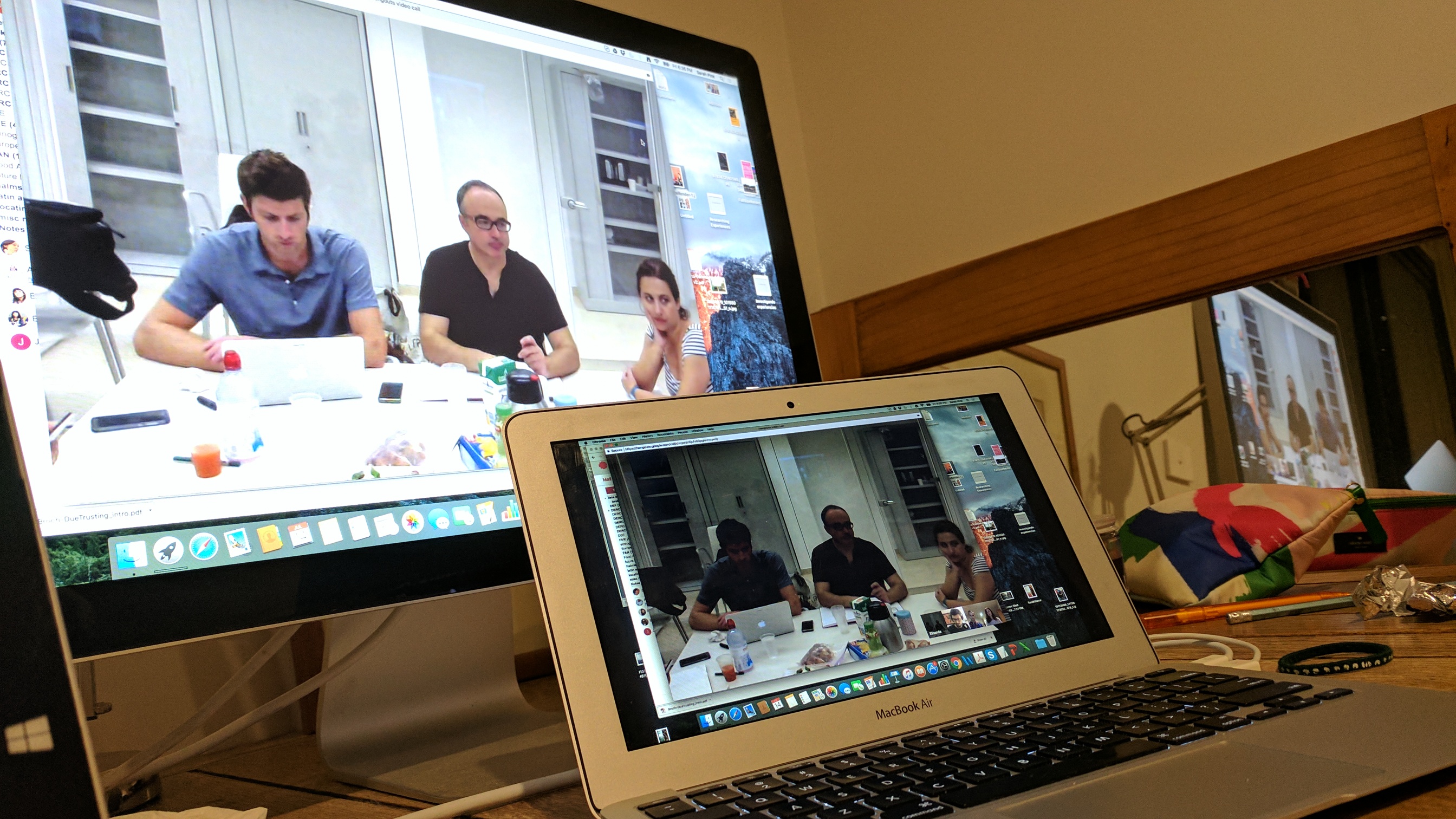To try and answer the questions resulting from our initial ethnographic experience, let’s first look at the practices of DIY biologists themselves, the typical workshops that occur in their spaces and, most importantly, the workshop we ourselves participated in.
The tool we built is the spectrophotometer – an essential instrument for a biology lab, whose purpose is measuring and analyzing particular properties of a biochemical sample. This is done by separating the range of colors of a light source that is passing through the sample. The open designs are part of the spectrophotometry kit built by the citizen initiative PublicLab, and are specifically designed for use with the average smartphone to practically test substances in the domestic context – an example application we were give was “to test the quality of aquarium water”. For this, the typical spectrophotometry box (fabricated with expensive material) was scaled down to affordable materials such as carton, a cheap foil for diffracting the light, and the inevitable glue and scissors.
After dwelling with correctly assembling the small carton box, the final step involved correctly positioning the spectrophotometer on the back camera of the smartphone, so that incoming light was diffracted through the box and into the camera lens. The desired effect looked something like this:

Did all participants manage to get to it? Well, while some of us had issues with correctly building the box and dealing with the different problems of smartphone cameras, others were happy to move on to the level of understanding what they see and how to precisely analyze it. Hellas, the 2-hour session, it seemed, was sufficient time to build a relatively functional tool, yet scant for a more profound engagement with its real-life application.
In a typical DIYBio activity, participants often have the feeling of “losing track of time”, engaging in practices beyond the main theme, and at times even ending up starting a completely different project.
https://www.instagram.com/p/BLBHYpRjnfl/?taken-by=diybiobarcelona
For the local DIY biologists, they don’t aim to just offer the beloved public an engagement with an expert domain. By creating a space where science can be practiced in an open manner, they strive “to introduce the fun and creativity that biology and biotechnology can involve” so citizens can find joy in experimenting and discovering, and might dig further into science.
Hence, this scarcity of time, though a well-established format within traditional educational institutions, seems to compartmentalize and transform bottom-up groups’ practices by trying to impose the traditional way of showing “what science is about” and, therefore not giving time for a deeper engagement. So, despite placing themselves in the orbit of an open and accountable science, modern institutions seem keen to, as some members say, “knock on the doors” of small communities and popular associations alike, as a way of trying to phagocytize the arising forms of citizen science.






